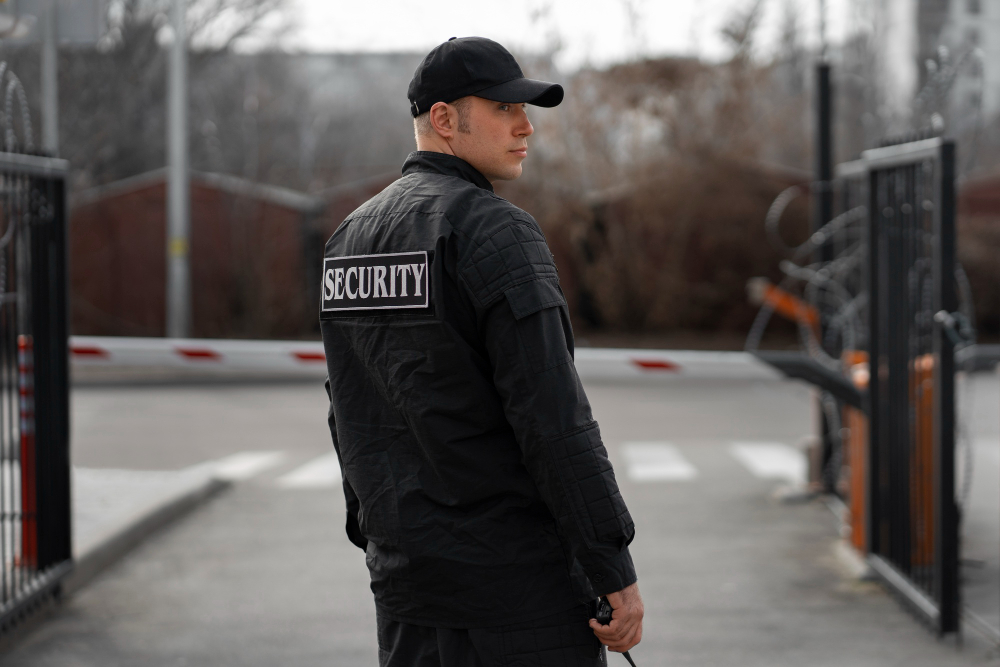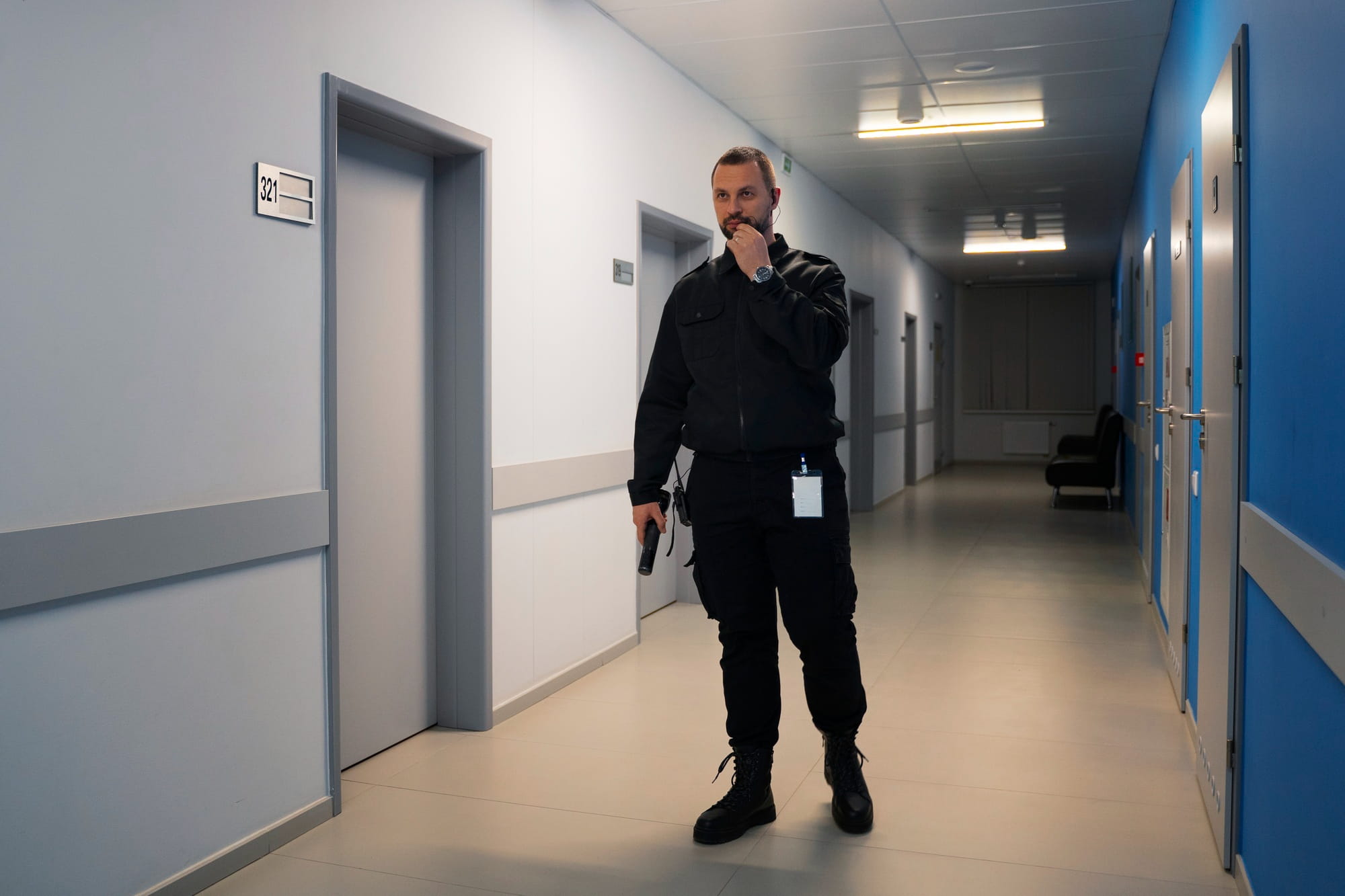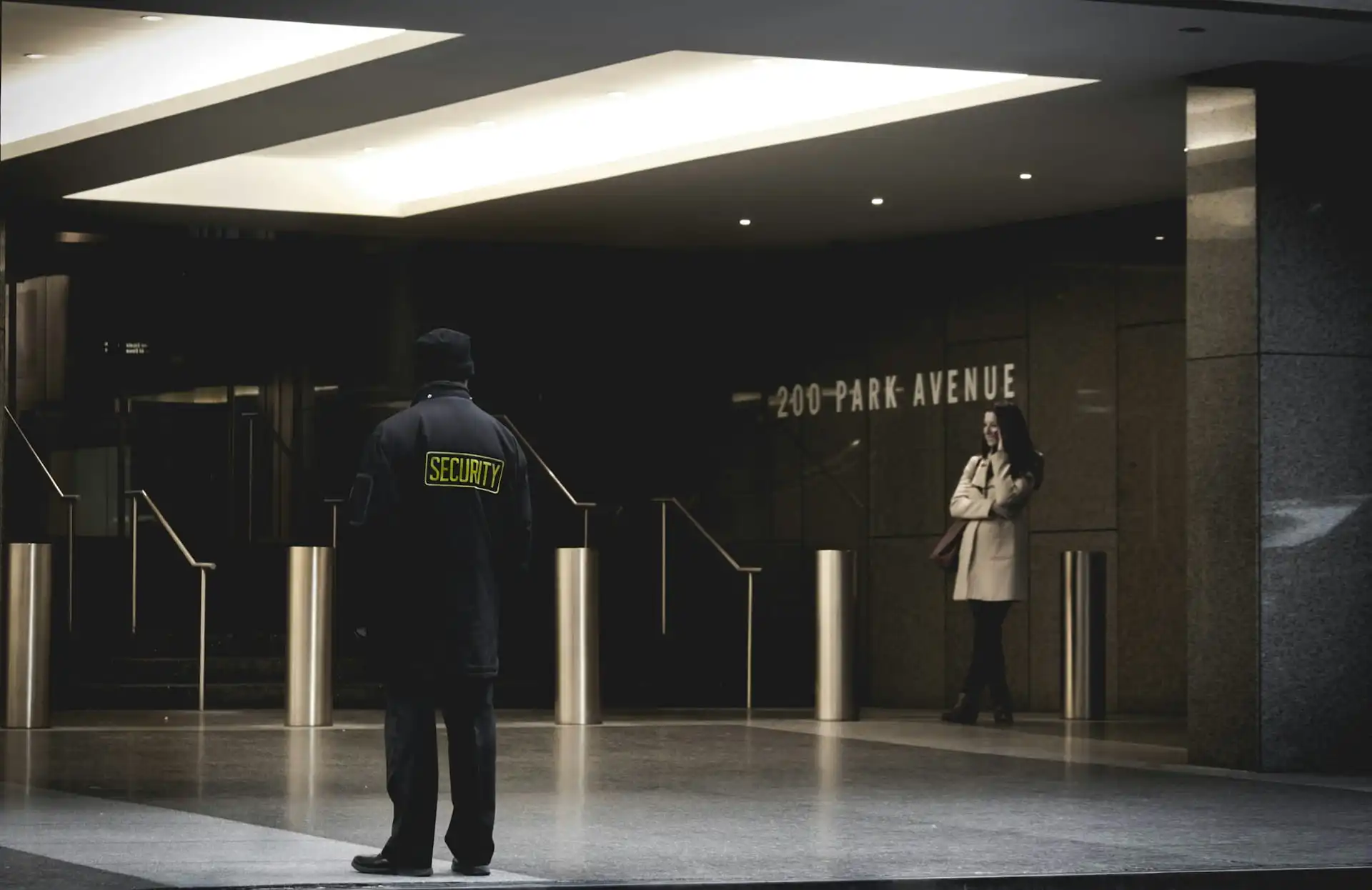
- Mon, Oct 2025
- |
- Reliable Guard and Patrol Service Inc.
Security officers should conduct patrols based on three main factors: property size, risk level, and external conditions. Most properties need patrols every 30-60 minutes during high-risk hours, while low-risk areas may only require checks every 2-4 hours. Large properties with multiple entry points need more frequent patrols than smaller, single-access buildings. Night patrols typically happen more often due to increased criminal activity and reduced visibility. Weather conditions, local crime rates, and special events also affect patrol frequency. Effective security guard services use random patrol times to prevent criminals from learning patterns, combined with extra checks of vulnerable areas like dark parking lots, back entrances, and blind spots. The best patrol schedule balances comprehensive coverage with efficient use of security resources to maintain safety while deterring criminal activity.
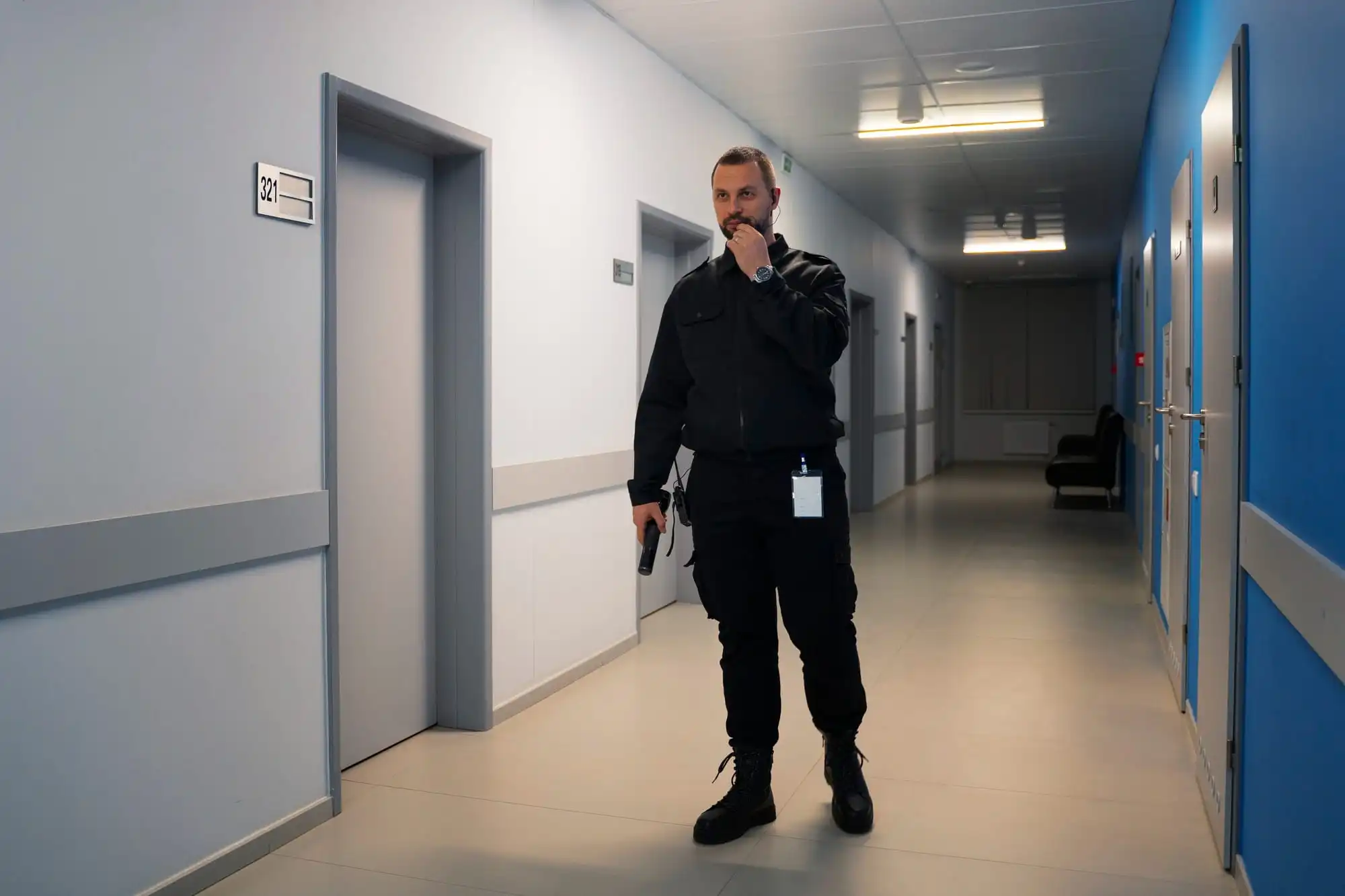
Why Security Patrols Are Essential
Security patrols play a vital role in checking for dangers, finding weak spots, and stopping crimes before they happen. When guards make regular rounds through your property, they actively work to keep the area safe by spotting possible problems early and making sure everything stays protected. This hands-on approach helps create a secure space where people feel safe, whether at shopping centers or office buildings.
Checking for Risks and Dangers
Security guards carefully study properties to find possible dangers and weak points that need attention. They look at past break-ins, check current safety measures, and spot areas where problems might occur. The National Association of Security Companies recommends comprehensive risk assessments as industry best practice.
This work means figuring out how likely different problems are to happen, like damage to property, stealing, or people getting in without permission. Security teams take what they learn and create plans that deal with these risks in the best way possible.
Security patrols are key to reducing the dangers that guards find during their checks by showing criminals that someone is watching. Guards who walk around watch for strange behavior, make sure people follow the rules, and act fast when emergencies happen.
Just having armed security guard services or unarmed officers around stops many crimes from taking place in the first place. Each patrol route is planned based on what each place needs and what the risk study shows.
How well a security plan works mostly comes down to finding risks the right way and putting patrols in the places where they matter most. When guards know where problems might happen, they can focus their efforts and keep properties safer.
Finding Weak Spots
Patrol guards have an important job in spotting weak areas around a property. These places might be dark parking areas, back doors that nobody watches, or empty hallways where people can’t see what’s happening. ASIS International provides guidelines for identifying these vulnerability points.
Security professionals study these spots closely because criminals often target them first. When security guards find these problem areas early, they can change their walking routes to check these places more often, making everything safer and cutting down on possible threats.
Security teams also think about how a building is set up when they look for weak points. Places without security cameras or where safety equipment like fire extinguishers sit behind locked doors need extra visits from patrol guards, especially at warehouse security locations.
This smart way of working helps trained security teams from trusted Houston security companies build patrol plans that fit what each place needs, making sure someone is always keeping watch over every area. By focusing on the right spots, guards can stop problems before they start.
Stopping and Preventing Crime
Security patrols are vital for stopping crimes and keeping criminals away. When guards make regular rounds, they can catch strange behavior right away, step in before small problems become big ones, and show everyone that someone is always watching the area. According to Security Magazine, visible patrols reduce crime by up to 40%.
This forward-thinking method cuts down on stealing, property damage, and other safety problems.
Trained security guards understand that being seen is the best way to scare off criminals. Just by being there, they make people who might commit crimes think again about causing trouble on properties they protect, whether providing building security or event protection.
When guards do their patrols the right way, they keep everyone safe while also helping people who live or work there feel more comfortable. A good security company’s plan means always checking for new risks and changing how often guards patrol based on any new dangers that pop up.
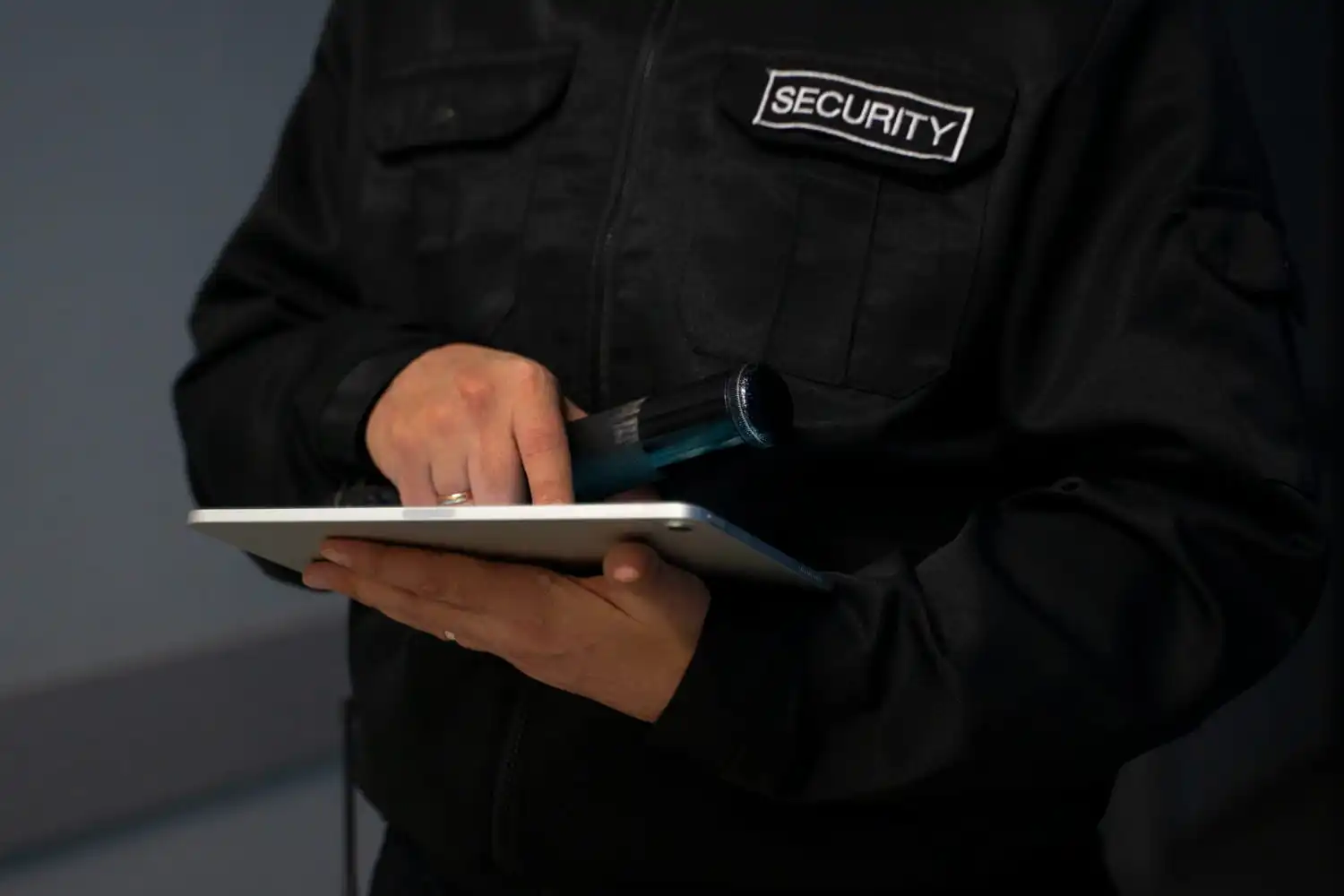
Setting How Often Patrols Happen
Deciding how often guards should patrol depends on different things, like how big the property is and how it’s laid out, what risks exist, and what’s happening in the surrounding area. These factors are really important when creating a patrol schedule that actually works to keep places safe, whether in Sugar Land or downtown Houston.
How Big the Property Is and Its Design
The size of a property and how it’s designed have a big impact on how often security patrols need to happen. Big properties with complicated layouts need guards to patrol more often to make sure they cover everything and can respond quickly.
Small properties also need regular patrols, especially when there are lots of places to hide or many doors and windows where people could get in.
When patrol schedules match the property’s size and design, unarmed security guards can properly watch all the risky areas, making weak spots stronger and scaring away criminals who might cause trouble.
Knowing these details helps figure out the best patrol schedule, making sure the whole property stays well-protected. Guards can then focus their time where it matters most.
Studying Risks and Dangers
Doing a complete risk study is key to figuring out how often security patrols should happen. When guards look at possible threats and weak points, they get a better picture of how much danger the property faces.
This study means finding high-risk spots, like areas where no one can see or hidden corners, which need guards to check on them more often to stop security problems from happening. OSHA safety standards emphasize the importance of regular hazard assessments.
Security guards also need to think about outside factors when they study risks. These include things like how much crime happens in the neighborhood, past problems at the property, and current events that might make security risks worse.
By looking at all these things, security teams in Pearland and surrounding areas can change patrol times to match when dangers are highest and deal with new threats before they become real problems. This smart planning keeps properties safer all the time.
Outside Influences
Outside influences like weather, where the property is located, and what time it is can really change how often patrols happen and how well they work. Bad weather, especially when it’s very hot or cold or raining hard, can make it harder to see and get to certain parts of the property.
Also, where the property sits matters a lot when deciding patrol schedules because different neighborhoods have different amounts of crime happening. The time of day changes security needs too, since night patrols need guards to be extra careful because it’s harder to see and criminals might be more active. Security Today reports that 65% of property crimes occur during nighttime hours.
Knowing how these outside influences affect security patrols is important for making a patrol schedule that works well to protect weak spots while keeping criminals away. Guards at construction sites particularly need to adjust their routes and timing based on these factors to provide the best protection possible.
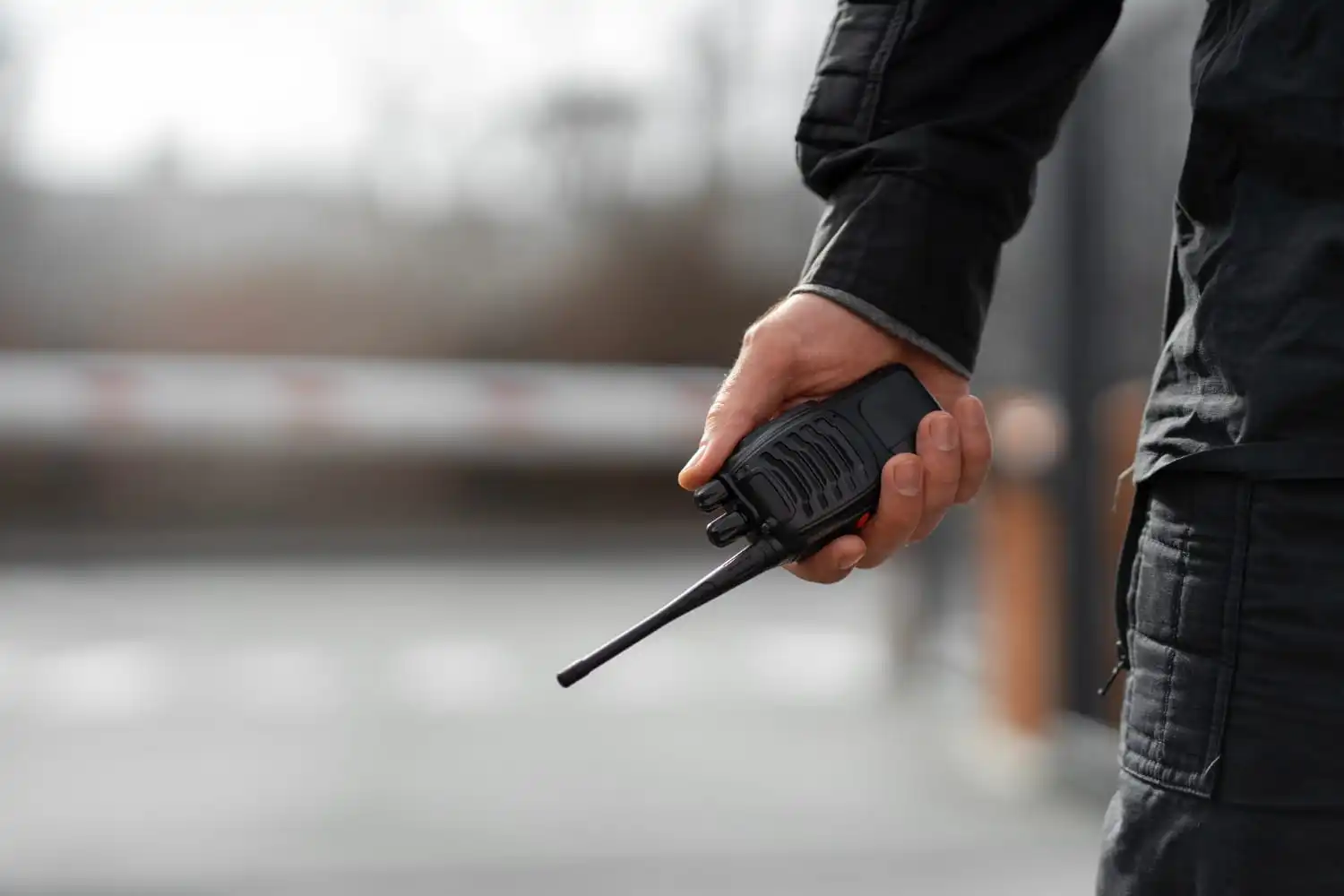
What an Experienced Security Team Does
A skilled security team runs patrols at different, unpredictable times, using smart plans to make sure your property stays safe and protected. Their experience helps them know exactly when and where to patrol for the best results, whether providing hotel security or protecting corporate facilities.
Running Patrols at Different Times
Security guards should do their patrols at random times to make them work better. When patrols happen at different times, it keeps possible troublemakers guessing and stops criminals from figuring out when guards will be around.
This way of working makes sure that security guards check different areas and run into different situations, making it much harder for people with bad intentions to plan crimes ahead of time. The Security Industry Association endorses randomized patrol patterns as industry best practice.
When guards patrol at times nobody expects, they can surprise people who shouldn’t be there and scare off criminals before they act. Mixed-up patrol times also help guards find any security problems or weak spots around the property better, which makes the whole place much safer in the end.
Using Smart Patrol Plans
Moving from random patrol times to using smart patrol plans is important for keeping security strong. Security teams plan their patrols by working together, making sure every area gets the attention it needs.
These smart plans include drawing out maps of the property and finding weak spots where problems might happen. By using technology and studying data in these plans, security guards at event security services can cover big areas better while spending more time where they’re needed most.
When security teams use well-thought-out patrol plans, they can act fast when new risks or strange activities show up. By using what they learn from risk studies and past problems, security guards can improve their patrol paths and times to make sure they cover everything and stop crime effectively.
This doesn’t just make places safer but also helps property owners and people who use the buildings feel better knowing that strong security measures are working to protect them. Good planning means better protection for everyone. Learn more about our services to see how we can help.
Regular Check-ins for Guards
Regular check-ins for guards are important to make sure they’re doing well and ready for their patrols. It’s vital to set up frequent times to check how security staff are feeling physically and mentally. The U.S. Department of Labor mandates regular wellness assessments for security personnel.
When management does regular check-ins, they can make sure guards have what they need to handle any possible risks or dangers during their rounds.
These check-ins also give guards a chance to talk about any worries they might have, creating a workplace where people support each other. Through good communication during these meetings, security teams can fix any problems quickly, making the whole operation work better.
Looking ahead at making security patrol plans better, let’s explore smart ways to use well-planned patrol methods that keep properties safe and secure. Contact us to learn more about our comprehensive security solutions.
Conclusion
Security patrols are the backbone of keeping any property safe and protected. By understanding how often patrols should happen and what factors affect their timing, property owners can build stronger security plans that really work. Remember that good security isn’t just about having guards walk around, it’s about smart planning, finding weak spots, and changing patrol schedules based on real risks and dangers. Whether you manage a small building or a large complex, the right patrol frequency makes all the difference in stopping crime before it happens. Security teams that use random patrol times, focus on vulnerable areas, and adjust to outside influences create the safest environments for everyone. Take action today by reviewing your current security setup and making sure your patrol schedule fits your property’s specific needs. When you invest in proper security patrols, you’re investing in peace of mind for everyone who uses your property.
Frequently Asked Questions
How often should security guards patrol a small office building?
Small office buildings typically need patrols every 1-2 hours during business hours and every 30-60 minutes after hours. The exact frequency depends on factors like the number of entry points, local crime rates, and whether the building has security cameras in place.
What’s the best time to conduct security patrols?
The most effective approach is to patrol at random, unpredictable times rather than following a fixed schedule. However, increase patrol frequency during high-risk periods like night hours, weekends, and holidays when criminal activity tends to be higher.
Should security patrols be more frequent in parking areas?
Yes, parking areas need more frequent checks, especially if they’re poorly lit or isolated. Guards should patrol parking lots every 30-45 minutes during peak times and focus extra attention on dark corners and areas hidden from public view.
How does bad weather affect patrol schedules?
During severe weather like heavy rain, snow, or extreme temperatures, patrols might happen less often for outdoor areas due to safety concerns. However, guards should increase checks at entry points since bad weather can provide cover for criminal activity.
Can technology reduce the need for frequent security patrols?
While security cameras and alarm systems help monitor properties, they can’t fully replace physical patrols. Technology works best when combined with regular guard patrols, as human presence deters crime and allows for immediate response to problems.

